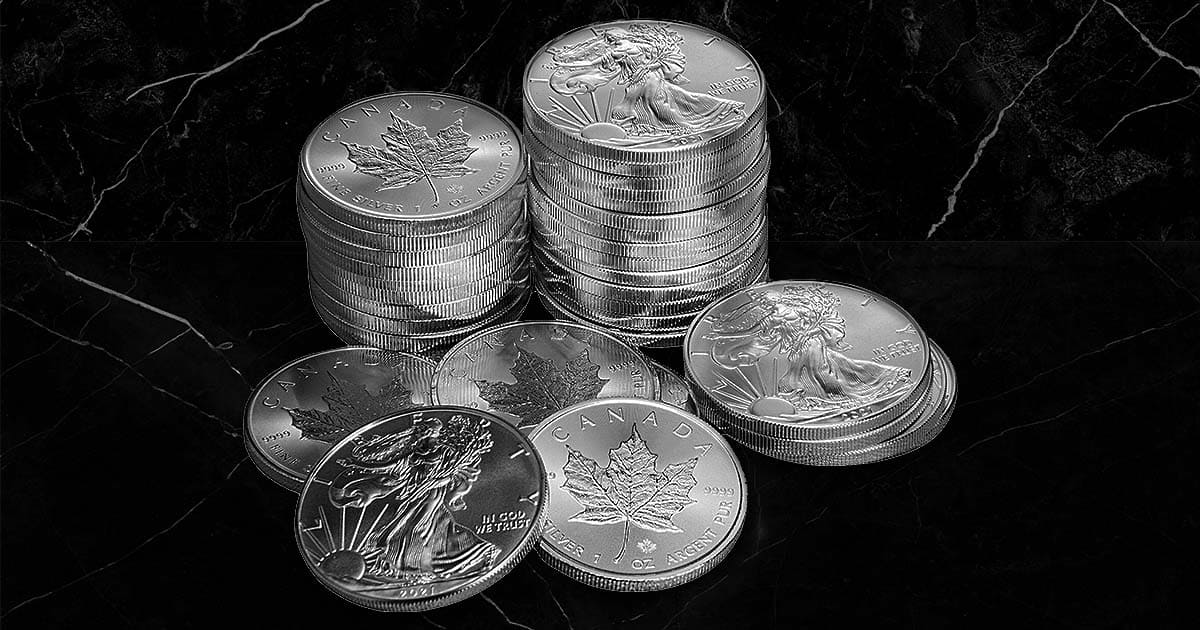Can I Sell Silver Without Reporting to the IRS?
Individual taxpayers who sell silver for a profit may be obligated to report a capital gain when filing their return. This is true for most types of collectibles such as coins, stamps, antiques, and comics. When selling silver coins in consideration of reporting to the IRS, you must report the sales of any combination of 90 percent silver US coins with a face value of over $1000 and 0.9999 fine silver bars totaling over 1000 troy ounces. Other items like
silver bars and collectibles, need to be reported if the sales result in a capital gain. If you experience a significant loss when you sell your silver, you may benefit from reporting the loss.
What Types of Silver Sales do not Trigger a Form 1099-B Filing?
The IRS requires entities, such as brokers and financial institutions, to report sales of certain silver assets on Form 1099-B. However, some silver sales may not trigger a Form 1099-B filing requirement.
These types of silver sales may not trigger a Form 1099-B filing requirement:
Personal-Use Property
If you sell silver considered personal-use property, such as silverware or jewelry, it may not trigger a filing requirement. However, any gain from the sale is subject to capital gains tax.
Small Silver Sales Transactions
If the total yearly proceeds from the sale of silver are below a certain threshold, a reporting obligation may not be triggered. Please note that these thresholds can change, so refer to the current IRS guidelines.
Non-Broker Transactions
If you sell silver to an individual or a non-broker entity, it is up to you to
report a capital gain if applicable.
However, if a sale does not trigger a Form 1099-B filing requirement, you may still be responsible for accurately reporting any capital gains on your tax return. Check with your tax preparer if you have any concerns before filing.
Capital Gain Taxes on Silver Sales
The tax treatment of capital gains on silver sales varies depending on your state’s tax laws. However, this is how capital gains taxes on silver sales are typically handled in terms of Federal requirements.
Short-term vs. Long-term Capital Gains. Capital gains on the sale of silver are classified as either short-term or long-term, depending on how long you held the silver before selling it. The classification can impact the tax rate applied to the gains.
- Short-term Capital Gains: If you held the silver for one year or less before selling, profits from the sale are considered short-term capital gains. Short-term capital gains are taxed at your regular income tax rates but limited to a maximum of 28 percent.
- Long-term Capital Gains: If you held the silver for more than one year before selling, the gains are classified as long-term capital gains. Long-term capital gains qualify for lower tax rates than standard. The specific long-term capital gains tax rates vary.
Cost Basis and Calculating Gains. To determine your capital gains, you will need to calculate the difference between the sale price of the silver and its cost basis. The cost basis is the original price of the silver, including any expenses related to the purchase, such as commissions or fees. If there are adjustments to the cost basis due to improvements or repairs, those can also impact the calculation.
Reporting and Filing Taxes. When it comes time to file your taxes, you must report capital gains from the sale of silver on your tax return. You may need to complete relevant forms, such as Schedule D, to accurately report your capital gains and calculate your tax liability.
Are the Reporting Obligations for the Sales of Silver the Same as Gold?
The short answer is no. While you must report capital gains, the requirements are different. Silver sales that require reporting are 90 percent silver US coins with a face value over $1000 and silver bars 0.999 fine totaling 1000 troy ounces or more. Whereas for gold, dealers may have to report the sales of certain amounts of gold bars, Krugerrand, Maple Leafs, and the Mexican Onza.
What if I Sell my Silver Online?
If you sell silver, or any precious metal, to an online buyer such as a “we buy silver” company, tax obligations are the same as if you sold your silver to a
local coin shop, dealer, or pawnshop. The online entity may be required to file a Form 1099-B and you may be obligated to report capital gains.
Person-to-Person Sales of Silver Tax Obligations
Again, while the transaction may not be “officially” tracked, you are legally obligated to report capital gains. However, the buyer does not need to report their gain or loss until they sell the silver. Even though these transactions are not traceable, we encourage our readers to do the right thing.
What Might Happen if I Fail to Report my Silver Sales?
When required by law, failing to report the sale of silver may have legal consequences and result in penalties or fines. To avoid issues with the IRS, we recommend you comply with the applicable tax reporting requirements and report any necessary information when selling silver or other valuable assets.
It is important to keep accurate records of your silver sales. The information you will need to keep includes purchase and sales records, holding duration, and a record of transactions you previously reported. We can help you to easily track your precious metals using the online portfolio tool on apmex.com and within the
APMEX mobile app.
The information provided here is for educational purposes only. Please consult your tax professional for advice concerning the selling of precious metals, bullion, and numismatic items.
Under certain circumstances you can sell silver without reporting. However, in some situations you may be obligated to report capital gains to the Internal Revenue Service (IRS).

learn.apmex.com

















